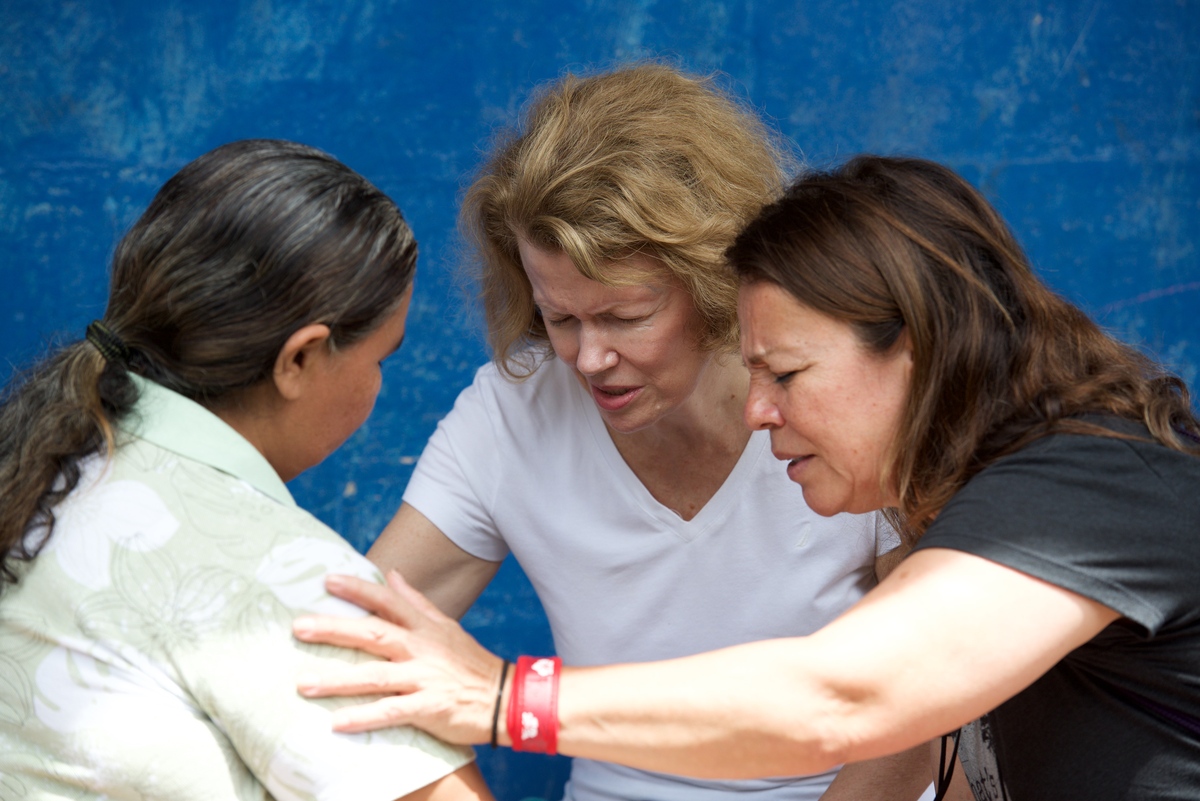God is Moving Among the Roma People
EuropaSoutheast Europe Area Director Sherry Sabella surveyed the horrible conditions before her. She was overwhelmed and perplexed, struggling to reconcile her geographic location with its appearance. Her eyes told her she was in a third-world country, but her head knew she was in a Roma village located in Eastern Slovakia in Southeast Europe. The living conditions, however, contrasted with her perceptions of European living. Children without clothes and riddled with diseases and open sores continually approached her. Ghettos and crime, families living out of garbage dumps, and old communist buildings with no electricity or running water surrounded her.
“The government wanted no part of [the Roma]. The church barely touched them,” said Sabella. “There was no ministry, no outreach to them; they were just lost people.”
These lost, broken, and impoverished people, with no hope of a Savior, drew Sherry and her husband, Jim, in.
One night, while in a Roma village, God spoke to Jim in a dream. The Lord led him to a field full of gorgeous, bright yellow flowers and green rolling hills. On the outskirts of the field were the most beautiful, vivid red poppies he had ever seen. As Jim admired these vivid red poppies, he heard plows, tractors, combines, and other heavy machinery approaching. Jim continued to watch in horror as farm machinery came rolling across the field, squashing and destroying the beautiful red poppies so they could harvest the yellow flowers. The Lord spoke to him, “You see these yellow flowers? These are the people of the societies with whom you work in Europe. They are the Slovaks and the Czechs. The red flowers on the fringes of society are the marginalized of societies, and no one cares. People are destroying them and there’s no one to help them. That’s what I’m sending you to do.”
After the Lord spoke to Jim through this dream, the Sabellas answered God’s call to care for and advocate for the Roma people who are on the fringes of society.
Europe’s Heart, a ministry founded by the Sabellas, brings the gospel to Roma communities. Europe’s Heart raises funds to plant and build churches, ministry centers, and community centers. The ministry helps the Roma people experience God’s love, as well as receive the care society has denied them for generations. Partnering with Convoy of Hope, Europe’s Heart provides food and clothing to impoverished Roma communities.
“We believe, first and foremost, that if we meet [the Roma peoples’] basic needs with food, clothing, clean water, and shelter, they know we mean business,” said Sabella. “Then [the Roma] trust us to bring the gospel. Their need to live each day is more important than stories they don’t know. But we can be Jesus through taking care of the ones He told us to take care of.”
However, the Roma have more than just physical needs. Europe’s Heart also hosts tent revivals where thousands of Roma people come to receive various forms of help. This spirit of revival is sweeping through Slovakia and many other areas in Southeast Europe. Roma churches, built, fostered, and then transferred to Roma leadership, overflow with Romani people every Sunday, who are curious to hear the hope of Jesus and experience the Holy Spirit.
In countries like Hungary, the Roma church district is experiencing the most rapid growth of any district. These community-driven Roma churches are quickly expanding throughout Southeast Europe. “It’s incredible to see,” said Sherry. “The Roma are so community-oriented that when one community receives Christ and revival starts, it quickly spreads to the next.”
Jim spoke at a Romani church in Sabinov, Slovakia. The church was packed with Romani people. Instead of addressing the whole crowd, though, Jim felt the Holy Spirit tell him to address Romani men.
Jim boldly proclaimed, “Stand up and be men of God. Give your lives to God. Stop beating your wives, stop drinking, stop using drugs. Follow Jesus.”
After his bold word from the Lord, 200 men approached the altar and surrendered their lives to Christ.
The Roma peoples’ acceptance of the gospel is credited to their lack of emphasis on earthly wisdom and meager human knowledge. Their faith is pure. Because of the trust that has been established between Romani leaders and those ministering to them, the Roma people hold on to the hope of Christ. They deeply value their relationships with the Lord, those ministering to them, and one another.
However, this trust isn’t built instantly. Roma communities, because of historic marginalization, hold many challenges.
“When you go into communities, it is very dangerous,” said Sherry, “You put your life in your hands if you go into a village and they do not know you. You may not come out alive if you go in without the necessary people.”
These safety concerns are especially true if the Roma are not Christ followers. However, evangelistic outreaches are changing the culture and atmosphere of Roma villages. In Sabinov, Slovakia, crime dropped 20 percent since Europe’s Heart began working with the Roma people.
Although those outside Roma communities engage in ministerial efforts, Roma people conduct much of the ministry that occurs in Roma communities. Trusted Romani believers and ministers disciple and evangelize their own people. They make disciples who reproduce other disciples.
“The Roma get saved, they follow Jesus, they study, they become pastors, and they lead each other into communities of faith,” said Sherry.
This outcome has not been coincidental. Believers, burdened for the Roma, intentionally pour out the enduring love of Christ over this people group, whom society has left on the perimeter, bulldozed over, and cast off.
As I stood in a Hungarian art museum just a few days later, my eyes wandered to one of the simplest yet most beautiful paintings I’ve ever seen. A medium-sized canvas hung before me. Its intricate, yet delicate, gold frame held a large poppy field. This field, unlike Jim’s dream, had hundreds of poppies layered all over the canvas. Not on the perimeter, but grouped together, in community. On the far left in the distance was the figure of a man, watching over the poppies. I couldn’t help but think of the Romani people, the poppies, and the unity within their communities. Their relational nature, and a God so carefully watching over them.
By Holly A.V. Knapp






















